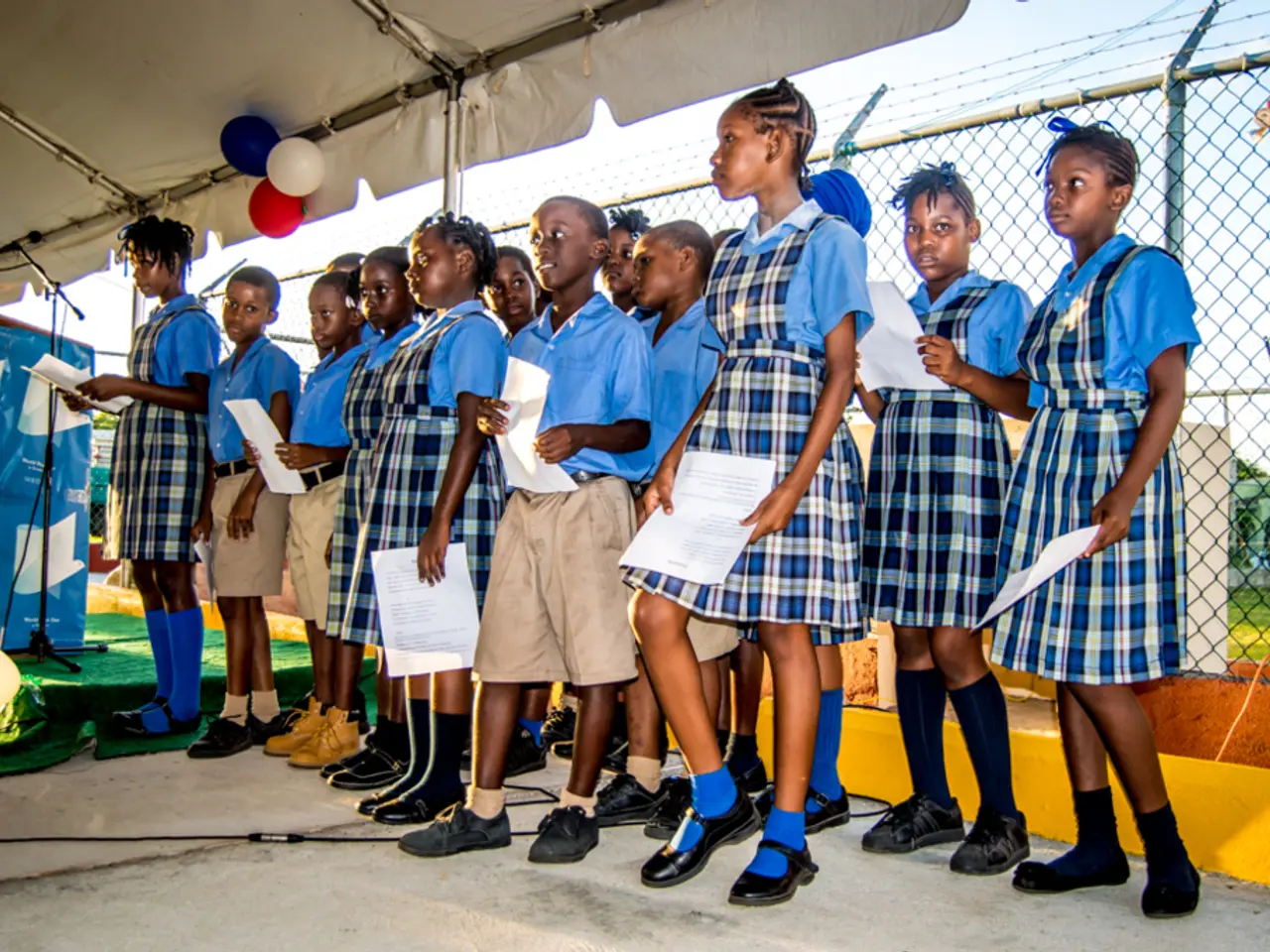Trump's Battle Over Birthright Citizenship: A Partial Victory for the President
Supreme Court Rules in Trump's Favor in Citizenship Fight
Washington (dpa) - President Donald Trump has scored a significant move in the ongoing dispute over birthright citizenship in the US. In a historic decision, the Supreme Court has partially overturned the temporary orders issued by federal judges that halted Trump's decree across the nation, concluding that these nationwide stops likely surpassed their authority. The decision, however, does not question the constitutionality of the decree itself.
The government contested that the temporary orders, with nationwide impact, restricted the executive's capacity to perform its duties. It requested that such stops applied only to the directly engaged plaintiffs, not the entire country. The justices concurred in their verdict. Among those suing were 22 states, with the decree potentially taking effect in 30 days in the remaining 28 states, according to the New York Times.
Trump's Aim and Temporary Court Orders
In the US, the 14th Amendment of the Constitution confers citizenship on anyone born on US soil and under US jurisdiction. Trump has challenged this principle. Upon his return to the White House, he issued a decree intent on denying citizenship to certain newborns.
The Current Legal Status
The order has faced prompt legal challenges from various states, organizations, and individuals who allege it violates the 14th Amendment and federal law. Federal district courts in Maryland, Massachusetts, and Washington state issued nationwide injunctions, deeming the order unconstitutional [1][4]. However, on June 27, 2025, the U.S. Supreme Court, in a 6-3 decision, granted the Trump administration a partial stay on these injunctions. The Court limited the scope of nationwide injunctions, ruling that individual district courts typically should only grant relief to the parties before them, not extend injunctions nationwide unless the case is converted into a class action [1][3].
States Expected to Witness Change Within the Next 30 Days
The original injunctions blocking the order came from courts in Maryland (4th Circuit), Massachusetts (1st Circuit), and Washington state (9th Circuit) [1]. Consequently, following the Supreme Court's decision narrowing injunctions, states involved in the lawsuits (Maryland, Massachusetts, Washington) face continued impact. Other states participating or backing litigation against the order, such as a coalition of 22 states, may experience varying degrees of enforcement or legal uncertainty based on the outcome of subsequent legal battles [5]. The partial stay may pave the way for limited enforcement or renewed legal fights in some states outside Maryland, Massachusetts, and Washington if the government pursues it further.
In a Nutshell
- Trump's birthright citizenship executive order is currently obstructed in specific states by lower courts but partially permitted to progress due to the Supreme Court's ruling limiting nationwide injunctions.
- The Supreme Court has yet to rule on the constitutionality of the order itself.
- Within the next 30 days, the states directly affected by the injunctions include Maryland, Massachusetts, and Washington. Other states implicated in lawsuits could potentially face varying degrees of enforcement or legal unpredictability depending on the results of ongoing litigation [1][3][5].
This situation remains dynamic as legal challenges persist, and the Supreme Court may revisit the substantive constitutional issues in future rulings.
The Supreme Court's recent decision allows Trump's executive order on birthright citizenship to partially proceed, having limited the scope of nationwide injunctions issued in federal courts [1]. This decision raises questions about the future of birthright citizenship policy-and-legislation and the role of politics in general-news. In the coming 30 days, states directly affected by these injunctions include Maryland, Massachusetts, and Washington [1][3]. The fate of the order's implementation in other states involved in the lawsuits remains uncertain, underscoring the ongoing politics surrounding this issue.








